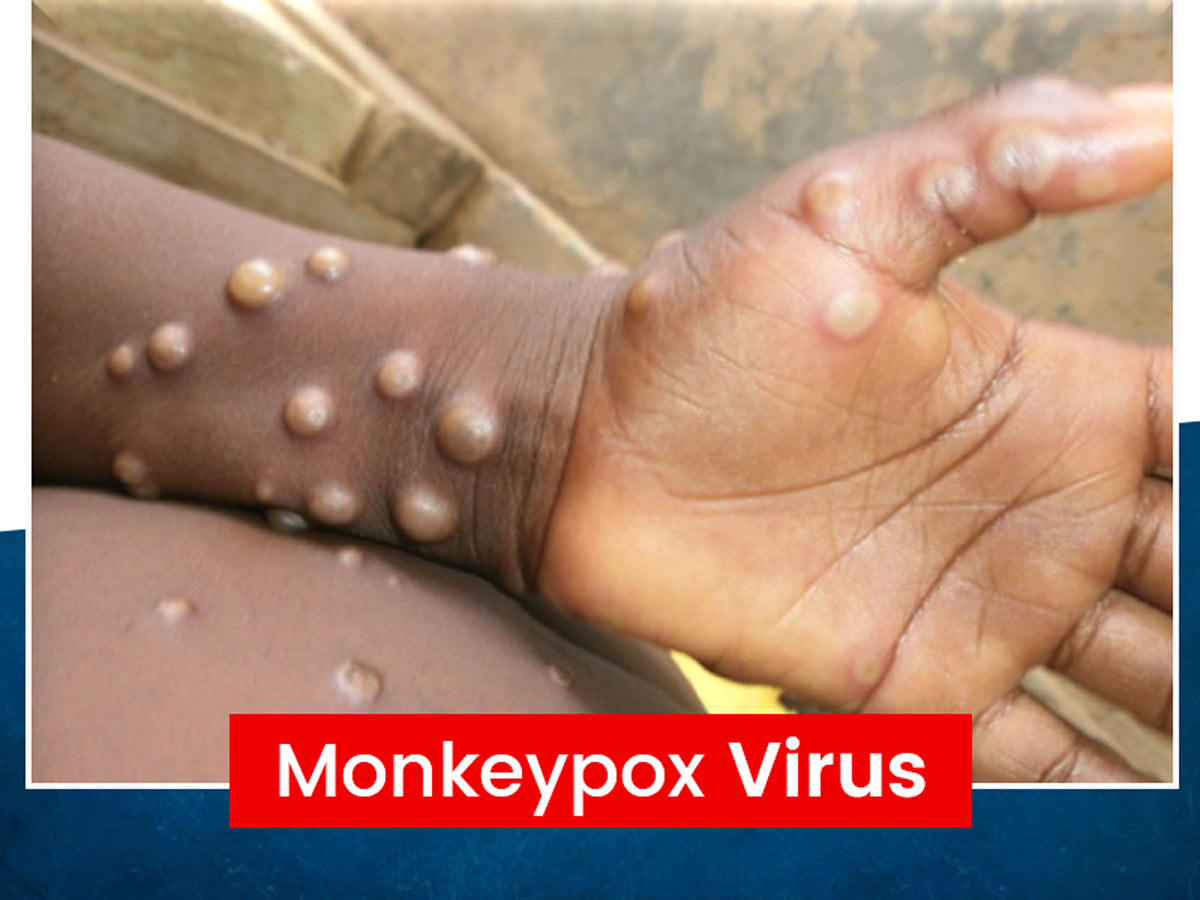![]()
The monkeypox virus has been causing a lot of concern recently as it is a highly contagious virus that can cause severe illness in humans. In fact, the World Health Organization (WHO) has warned that the virus could become another global health pandemic in 2022.
While there is no cure for monkeypox, early diagnosis and treatment are essential to preventing serious health problems. So if you are traveling to countries where monkeypox is common, make sure to take the necessary precautions to avoid getting sick.
What is the monkeypox virus?
Monkeypox virus is a virus that can cause a serious illness in humans. It is similar to the measles, mumps, and rubella (MMR) vaccine viruses. Monkeypox is most commonly found in Africa, Southeast Asia, and South America.
2. What are the symptoms of monkeypox?
The symptoms of monkeypox include fever, rash, headache, and muscle aches. These symptoms usually start 2-7 days after getting infected with the virus. The fever may last for several days, and the rash may last for a few weeks. The headache may be particularly severe. Some people may also experience pneumonia, seizures, or death from monkeypox.
3. How is monkeypox spread?
Monkeypox is usually spread through contact with respiratory secretions (such as saliva or mucus) from an infected person. It can also be spread through contact with surfaces that have been contaminated with the virus (such as doorknobs, countertops, or door handles).
4. What are the risks of contracting monkeypox?
The risks of contracting monkeypox are high. The disease can be deadly in most cases. In some cases, people who contract monkeypox may experience long-term health problems, including blindness or deafness.
Monkeypox Virus 2022
The Monkeypox virus is a serious disease that can be deadly to humans. It is caused by a virus that is spread through contact with infected body fluids, such as saliva or blood. The virus can also be spread through close contact with an infected animal.
2. What are the Symptoms
The symptoms of Monkeypox are very similar to those of other common illnesses, such as the flu. However, the monkeypox virus is more severe and can lead to death in some cases. The main symptom of monkeypox is a high fever, which usually lasts for about three days. Other symptoms may include a rash, body aches, and headache. In some cases, monkeypox can cause pneumonia or meningitis.
3. How is Monkeypox Diagnosed?
Monkeypox cannot be diagnosed by looking at the patient’s symptoms. The only way to determine if someone has monkeypox is to test their blood for the virus. If the person has monkeypox, they may experience significant health problems and may even die from the disease.
4. What are the Treatment Options?
There is no single cure for monkeypox. Treatment depends on the severity of the individual’s symptoms. In most cases, the patient will need to take medication to relieve their symptoms and help them recover. Some patients may also need to stay in the hospital for a while to ensure that they do not develop any serious health complications from monkeypox.
How to Treatment monkeypox
Monkeypox is a very dangerous virus that can be fatal. It is a close relative of the human measles virus, and can be spread through the air.
There is no specific treatment for monkeypox, but it can be treated with antiviral medications. The most important thing is to keep the patient comfortable and hydrated. Fever should be controlled with antibiotics, and breathing should be monitored closely to ensure that the patient does not develop pneumonia.
People who are at risk for monkeypox should stay away from people who are infected with the virus. Anyone who has been in close contact with an infected person should also take precautions to avoid being infected themselves.
Disclaimer
Monkeypox is a virus that can be deadly to people, and it’s another threat to public health. The monkeypox virus is closely related to the human measles virus, and it can cause serious illness in people who are infected with it.
Since monkeypox is spread through contact with respiratory secretions, such as saliva or mucus, it can be difficult to prevent its spread. Anyone who is potentially exposed to monkeypox should take all of the necessary precautions to protect themselves from this virus. They should avoid close contact with anyone who is sick, and they should also avoid contact with wild animals.
If you are ever diagnosed with monkeypox, you should seek immediate medical attention. The best way to protect yourself from this virus is by remaining healthy and avoiding contact with people who are infected with monkeypox.
